My Father’s Face: Pesach 2022

When trials and suffering test our resolve, we summon up that “father’s face” to illuminate the murky path through life
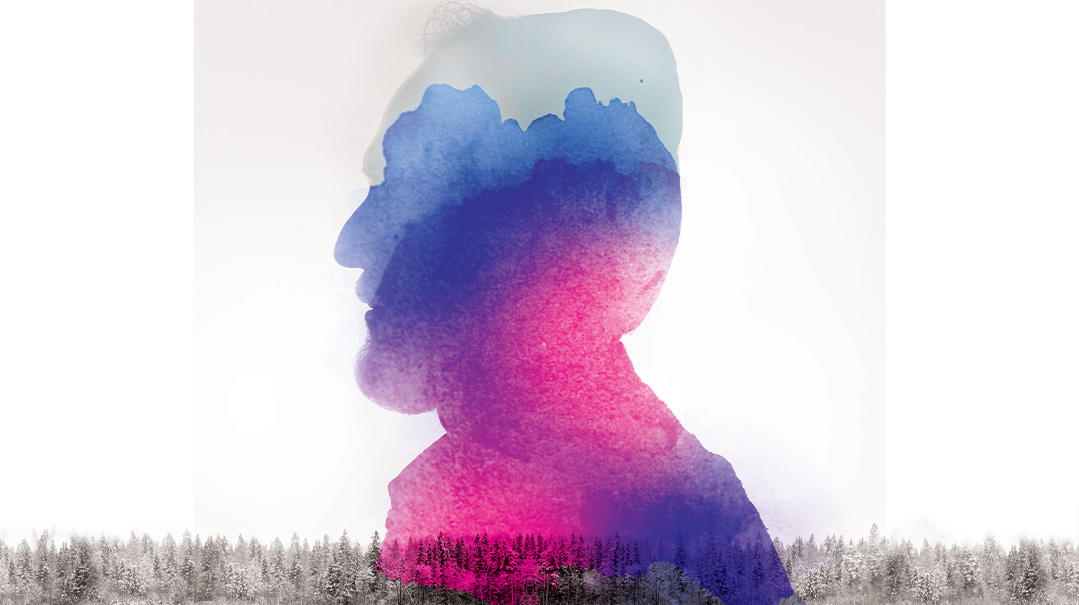
Yosef Hatzaddik was drawn to the brink of temptation — but when he envisioned his father’s face, he found the strength to stay true to his principles. Ever since then, the Jewish People have held on to mental images of loved ones, treasured last words of encouragement, or even family heirlooms, to keep them from falling. When trials and suffering test our resolve, we summon up that “father’s face” to illuminate the murky path through life.
Five stories
Project Coordinator: Faigy Hutner

From the Brink
As told to Sandy Eller
It’s true that lots of people don’t have it easy growing up, but having an abusive mother left me facing challenges that are far more daunting than what most kids face.
I grew up on Long Island as one of seven kids, attended seminary in Israel, and continued my education to become certified as an LMHC — a licensed mental health counselor. But as time went by, I started heading downhill, and even therapy wasn’t helping me cope with the anxiety and depression that haunted both my days and my nights.
By the time I was 24, I had had enough. Life was just too difficult, too traumatic, so I chose to end it via medical means while I was sitting in my car near a friend’s house in Brooklyn. Then I panicked: I didn’t want to be alone when I died, so I called a friend and told her what I had done, and she called Hatzalah.
I still remember the paramedics loading me into the ambulance and how annoyed, embarrassed, scared, and beyond exhausted I was the whole way to the hospital. Thankfully, my friend came along with me, and if not for her presence, I would have felt completely alone at this lowest moment of my life.
The doctors at the hospital insisted that I had to check into a psychiatric hospital ASAP, but as much as they talked and talked, I refused to listen. I had a good idea of what a psychiatric hospital was like, and I didn’t want to go there.
And then my dad walked into the ER. He walked over to my bed and told me that I needed to get better and that I couldn’t ever do something like what I had just done ever again. He kept on telling me that if going to a psychiatric hospital would make a difference, then I had to at least give it a try. I can’t even begin to explain how much I didn’t want to go, but in my heart of hearts I knew that my father was right, and, in retrospect, listening to him definitely saved my life.
That day in the ER was the first time I ever saw my dad cry. He walked over to my bed, took my face in his big hands, and through his tears he could barely choke out the words, “Look at my face, Miri, like Yaakov.”
As a baal teshuvah, my father sometimes struggled with terminology — I asked him if he was referring to the way the image of Yaakov’s face had kept Yosef Hatzaddik from deviating from the right path. He nodded his head and said to me, “Yes, that’s what I meant. Look at me. Remember my face.”
Those simple words sustained me during the difficult weeks I spent at the Horizon Unit at New York Presbyterian Hospital in Westchester, which provides comprehensive inpatient cognitive behavioral treatment known as CBT, and is designed to meet the needs of frum patients. There was even a time when I came close to taking my life again, but I squeezed my eyes shut and conjured up the image of my dad’s face, just like he told me to. Picturing his dark, deep, brown eyes and remembering how they glistened with tears in the hospital, I knew that I had to go on, for his sake.
It’s three years later and I just passed my exams to become an LMHC, and would love to work as a grief counselor in a hospice. Things aren’t perfect and they aren’t always easy, but I have a secret source of support that I take with me wherever I go. I have the strength to persevere because there are people in this world who love me and believe in me. I have the fortitude to claw my way back from the brink. I have the support to keep hoping.
I have the memory of my father’s face.
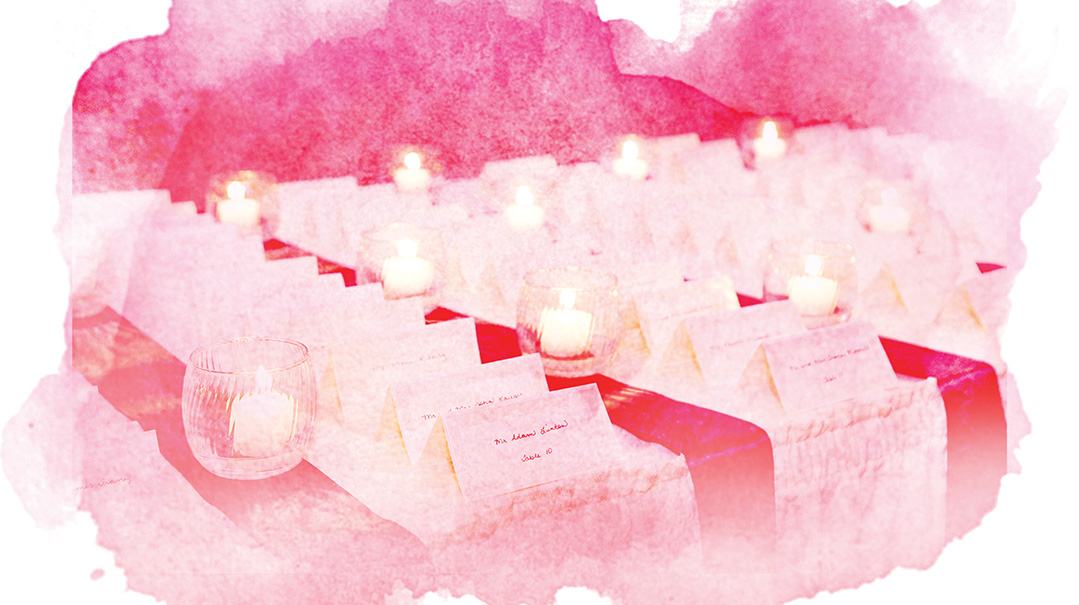
The Other Side of the Table
By Rabbi Yosef Sorotzkin
“I heard a faint whisper. It was my mother’s voice, and it said two words I knew very well”
MYmother, Rebbetzin Chassia Sorotzkin, was the consummate mechaneches. To her, life was a series of learning experiences, a constant quest for self-improvement. Her influence radiated in ever-widening circles of family and students.
The single pearl of wisdom that benefited me the most, from all those that she imparted, was what she called “farshtei yenem,” loosely translated as “understand the other.” In any disagreement, she taught me, one should try to understand one’s adversary. Why do they think this way? What life experiences are prompting them to take their position? Once you understand the reason for their argument — once you can humanize rather than demonize — then you can continue to disagree.
She illustrated her advice like a teacher using a visual aid: Imagine you’re sitting at the table having a disagreement with someone sitting across you. Stop arguing. Get up and sit down next to your adversary, and take in the view of the terrain from his side of the table. Then go back to your side of the table and continue the discussion. You may still disagree, but at least now you understand him.
I cannot recount how many times — in her lifetime and after — I have heard my mother’s refrain “farshtei yenem” whispered in my ear. At so many crucial moments, her guidance halted disagreements from morphing into altercations. They restored balance and sensitivity when righteous anger could have triumphed.
Many decades ago, there were not many Americans like us living in Israel, and the cultural divide was difficult to bridge. When an American relative of mine made a shidduch with an Israeli, I was asked to negotiate the wedding procedures.
One of the cultural differences I had to deal with was place cards. Israelis had never heard of them, while Americans considered them indispensable. The Israeli mechutan suggested that each side greet their guests in accordance with their custom — meaning, he’d forgo place cards while the other side could use them. I asked him to try to imagine a wedding where half of the guests have place cards with arranged seating, and the other half doesn’t. To me, it seemed ludicrous.
“Sounds fine to me,” he said.
But it wasn’t fine. When the wedding night arrived, all the guests noticed the place cards waiting. They descended upon the cards and began looking for their names. When the Israeli guests didn’t find their place cards, they felt terribly insulted and began leaving the hall in a huff.
The Israeli mechutan panicked. His guests were leaving en masse! In a panic, he swooped up all the place cards and removed them from the table.
The American mechutan turned to me in angry disbelief. “How dare he! We stayed up nights working on the seating arrangements. We want our guests to feel welcome and comfortable. We warned him about this scenario and he said it would be fine. How could he just toss all the cards?”
I assured him that I shared his indignation and that I was about to confront the mechutan.
Then I heard a faint whisper. It was my mother’s voice, and it said two words I knew very well: “farshtei yenem.” Before you argue, make an effort to understand the other side.
Amid the chaos, the anger, the betrayal of broken promises, I concentrated on what that other man must have felt. After months of preparation and anticipation, his child was getting married — and none of their familiar circles of friends and neighbors would be there to share the simchah. Agreement or no agreement, he had to salvage the situation, and this was the only way he knew how.
I shared with the American mechutan my newfound understanding and empathy. “You know, it’s true, you’re right,” I said gently, “but he’s not wrong.”
The music was playing, but in our little corner it was very quiet. The mechutan took a deep breath and nodded. We backed away from the scene and walked toward the set tables.
The wedding proceeded. It was beautiful, if a bit disorderly. For many years thereafter, the mechutanim would retell the tale whenever they got together, laughing as they remembered the ill-fated place cards and the guests who almost got away. They never realized that the true guest of honor was a woman whose two short words had restored peace to their intertwined families.
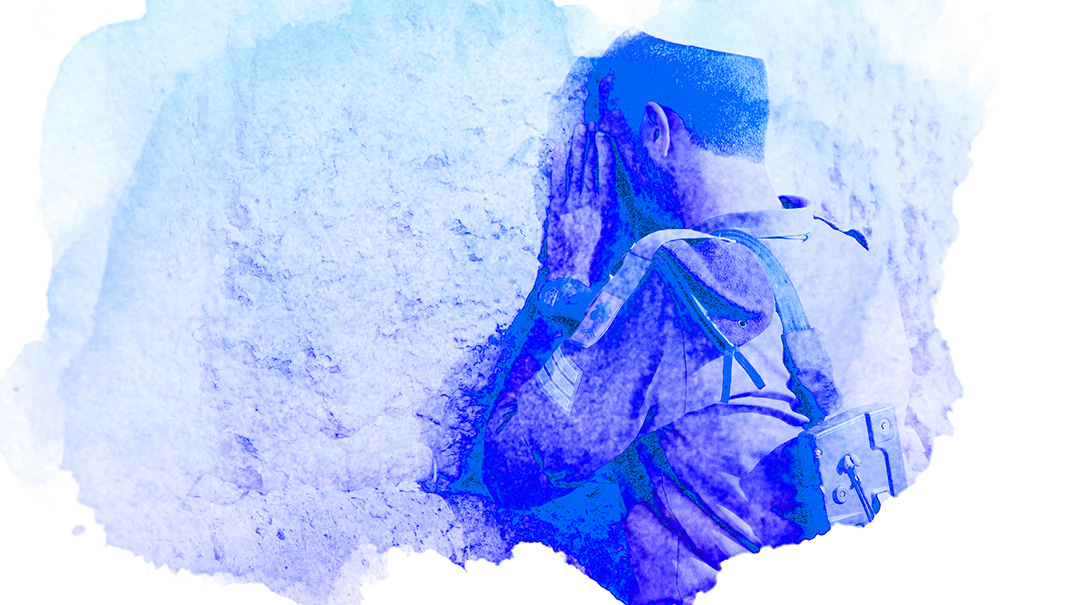
The Tattered Yarmulke
By Rabbi Ron Yitzchok Eisenman
“Imay not go to shul every day, I may not keep everything. But this yarmulke reminds me who
I am.”
My father has a cousin in Israel, I’ll call him Itzik, who’s curiously mismatched with his children. Itzik is “Orthodox-lite,” yet all his children are fully chareidi kollel families. And he’s very proud of them.
Itzik grew up Yerushalmi, like my father. I wondered why his observance got diluted over the years, but I never dared ask him.
“He went through some tough times,” my father once said. “We can’t judge him.”
That was all I knew.
Then right before the pandemic, I visited Itzik and asked him if he was proud of his ultra-chareidi family.
“Bevadai, of course,” he said, beaming.
I then had the chutzpah to ask him, “You gave your children a completely chareidi chinuch, yet you yourself don’t live that lifestyle. What happened?”
He then took off a very worn knitted yarmulke.
“This was my grandfather’s yarmulke,” he said. “He wore it when he came here after the Holocaust.”
Itzik then told me that when he was a soldier during the Yom Kippur War, the Egyptians captured him and his tank crew. They tortured the Israeli boys terribly. At some point the men made a pact that they would kill themselves rather then endure more torture. As they prepared for their last night on Earth, they decided to destroy their clothing, so as not to leave the Egyptians anything of value. Then they’d all ingest poison.
As Itzik began to remove his clothing, something fell out of a pocket.
“It was my grandfather’s yarmulke,” he said. “And you might not know this, but my grandfather had been tortured horrifically by the Nazis. Before he died, he gave me this yarmulke.”
“Zeide,” Itzik asked all those years ago, “why do you always wear that yarmulke?”
“To make sure I always remember I’m a Yid,” the dying man answered. “I may not go to shul every day, I may not keep everything. But this yarmulke reminds me who I am. Maybe not a perfect Yid, but still a Yid, and a Yid has hope.”
There in the Egyptian prisoner camp, Itzik clutched the battered yarmulke and began to weep.
“Guys, see this kippah?” he asked the other soldiers. “Do you know what it stands for? It stands for being a Jew — and a Jew always knows there’s a better tomorrow. We’re not going to die tonight. We’re going to live. And I promise Hashem before each of you that if we all survive, all of my children will be raised to totally serve Hashem.”
The men looked at Itzik as if he had lost my mind. But something must have stirred within them, because no one took any poison that night.
The very next day the Red Crescent informed the Egyptians that they knew about the prisoners and they could no longer torture them.
“Six months later we were liberated in a prisoner exchange,” Itzik continued. “Hashem kept His end of the bargain and I kept mine.”
He took off the yarmulke and turned it toward me. Crocheted on the inside of the kippah were the the names and dates of birth of all his children — a tribe of children who served Hashem fully, just as their father had once promised.
“I’d love to add my grandchildren too,” he said, “but there’s no way 47 names could fit on one kippah.”
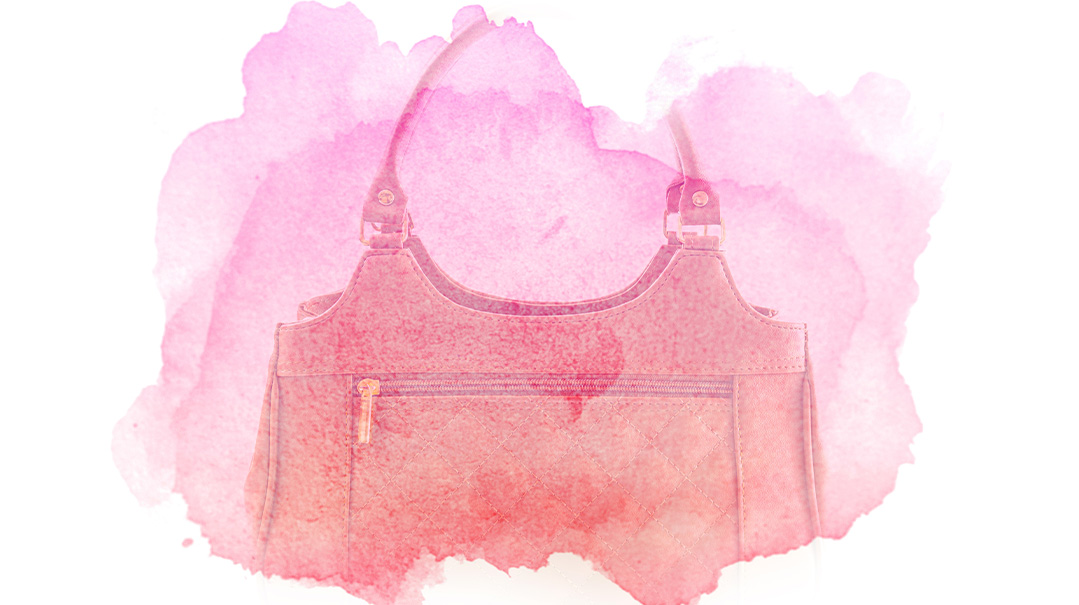
The Last Letter
By Mimi Guttentag
Every night, there was a new mountain of belongings for Ima and her fellow sorters to go through. What were the chances that this was really her mother’s handbag?
A stolen handbag bolstered my grandmother’s faith on the darkest night of her life.
My grandmother, Mrs. Erika Rothschild, née Bock, was a true lady in every sense of the word: full of joy, warmth, and an overflowing emunah. We called her “Ima,” and she was a true matriarch.
Ima was born in Pressburg in a house permeated by Torah learning. Her father, Samu Bock, had studied in a yeshivah in Pressburg for 14 years. Her mother, Gisela (Herzog) Bock, would fast every Monday and Thursday until noon, and she had her seat in shul removed, to allow her to stand the entire davening out of respect for Hashem.
Like many Central European Jews, Ima and her siblings were raised as German-speakers with a secular education. But she was also sent to Bais Yaakov in Tapolchan, Slovakia, where she developed her lifelong friendship with her teacher Rebbetzin Tzila Orlean-Sorotzkin.
When deportations of Slovakian Jews began in 1941, Samu and Gisela Bock decided that their daughters Erika and Mimi had to flee to Budapest, where Jews were safe. They paid a non-Jewish neighbor to drive their daughters across the border to neighboring Hungary. But the driver betrayed them and drove straight to the nearest Gestapo headquarters. The two sisters were ultimately sent to Auschwitz.
In the death camp, Ima was assigned the horrific job of sorting through the belongings of those who had just been gassed. During one night shift, something unusual happened. Suddenly, for no apparent reason, a sense of extreme fear gripped her.
As she would say later, until you got to Auschwitz, there was constant fear; afterward, one was so preoccupied with impending death that there was no fear at all. And yet on that night a sudden terror overcame her, making her teeth chatter. She reached for a siddur in the pile of belongings that she was sorting, and davened.
Later that night, a new consignment of belongings arrived from people who had just been gassed. Ima started going through the pile, sorting through the pieces of so many people’s lives: glasses, shoes, wallets, jewelry. Then she picked up a handbag and suddenly called out, “This is my mother’s!”
By this time, years had passed since Ima had seen her mother, and she had no knowledge of her fate. The camps were gassing thousands of Jews every day. Every night, there was a new mountain of belongings for Ima and her fellow sorters to go through. What were the chances that this was really her mother’s handbag?
As the others watched, my grandmother opened the handbag. Inside was a picture of herself, and postcards — addressed to her. They were stamped “undeliverable,” returned to her mother who had never stopped trying to contact her after she was imprisoned.
One, in Hungarian, bore the following message: “My dear child, never stumble, always have trust in G-d.”
What were the chances?
My grandmother survived the suffering and tears of Auschwitz and built a family with Mr. David Rothschild in Zurich, a home soaked with chesed and the warmth of Yiddishkeit.
In her later years she would speak of her experiences in schools, universities, and on television in Switzerland. She was often asked how she could still believe in G-d after all that had happened to her.
In a talk that she gave to foreign diplomats in Bern, Switzerland, in 1998, Ima spoke of that night when she found the handbag.
“Can you see that this was something supernatural?” she asked the diplomats. “At the very moment that my mother, from whom I’d been separated for years, was gassed, I was overcome with feelings of tremendous fear. And then, I was hand-delivered a message from her.
“‘Never stumble, always trust in G-d!’ These words were her last legacy to me, and have remained in my thoughts my whole life.”
Ima never complained about the world that she’d lost. For my grandmother, her faith was real: It was born in her parents’ home and bolstered in that last message hidden in her mother’s handbag in Auschwitz.
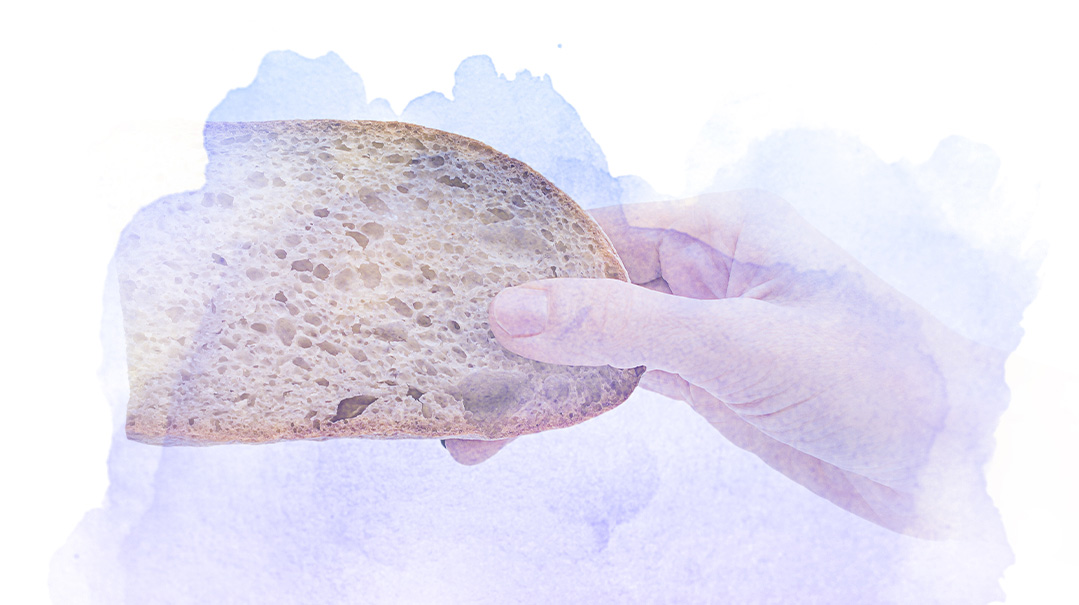
A Warning from Beyond
As told to Riki Goldstein by Dany Tennenbaum
Night after night, she appeared in his dreams, repeating the same warning. “Ess nisht gurnisht,” she told him clearly. “Don’t eat anything.”
My father’s tattoo was a KL number. Likely, you have never seen one, because there were not many KL survivors.
The widely known Auschwitz tattoo system came into use in the fall of 1941, while the KL (Konzentrationslager) numbers were already stamped onto the arms of Jewish prisoners in Mielec earlier than that. Earlier equals more years of Gehinnom, which equals less chance of staying alive.
My father, Mr. Aron Tennebaum, was deported from his home shtetl of Brigel [Brzesko] in Galicia in mid-1940. Actually, it was my grandfather who had been summoned for slave labor. But my father knew that his father, a refined talmid chacham who knew all of Shulchan Aruch by heart, wasn’t strong enough to withstand a day of forced labor, so as the oldest son, he went in his place. He would endure seven concentration camps, the first in Tchechoiv (Czechow), the last in Mauthausen-Gusen, where the kapos’ welcome to new prisoners was, “You will leave here through the chimney.”
When he fled the first camp, he found his family cramped in one tiny room in the Brigel ghetto. My father wanted to stay there, but his mother was too astute to allow it. She commanded him to go back to the labor camp. And then, Mamme blessed him — and commanded him to stay alive. Because of her command and brachah, my father was sure both that he would survive, and that he would be the only child to do so.
For the first three years in the camps, my father practically fasted on Pesach. Starving, he knew he was permitted to eat anything in order to survive, but every time he took that piece of bread in his hand, he had a vision of his mother scrubbing the house for Pesach, of his father doing bedikas chometz, and he couldn’t eat it.
When the US Army liberated Mauthausen-Gusen in May 1945, they found hundreds of dead bodies. They found a 186-step staircase of death down the steep side of a quarry, where prisoners were made to carry heavy granite blocks and fell to their deaths. They also found living prisoners. Stunned by the hell they were witnessing, the compassionate American soldiers fell over themselves to give their food away to these walking musselmen.
Weakened, starved, and sick, my father fell asleep. In his dream, Mamme was there.
“Ess nisht gurnisht,” she told him clearly. “Don’t eat anything.”
Night after night, she appeared in his dreams, repeating the same warning.
The American soldiers repeated their offers of food. Mamme repeated her warning. And my father obeyed her command. Around him, fellow prisoners became sick from the suddenness of ingesting rich foods in intestines that had shriveled for months or years. Tragically, some died.
The prefect of Milan, an Italian government representative, once asked my father how he could live through the rhythms of a daily life — family, work, routine — with the horrifying memories he carried.
“I took the memories and put them into a package,” my father replied. “I tied the package and put it into a drawer. And then I closed the drawer. Once in a while, I take it out and look inside.”
He was “too busy” building a family and a livelihood to go crazy from his suffering, pain, and losses, he said. By raising his own family as a tribe who would live their heritage, he took revenge on Hitler, yemach shemo, but perhaps more crucially, he repaid his mother, his rock, whose devotion to him even beyond her death preserved his life.
(Originally featured in Mishpacha, Issue 907)
Oops! We could not locate your form.

